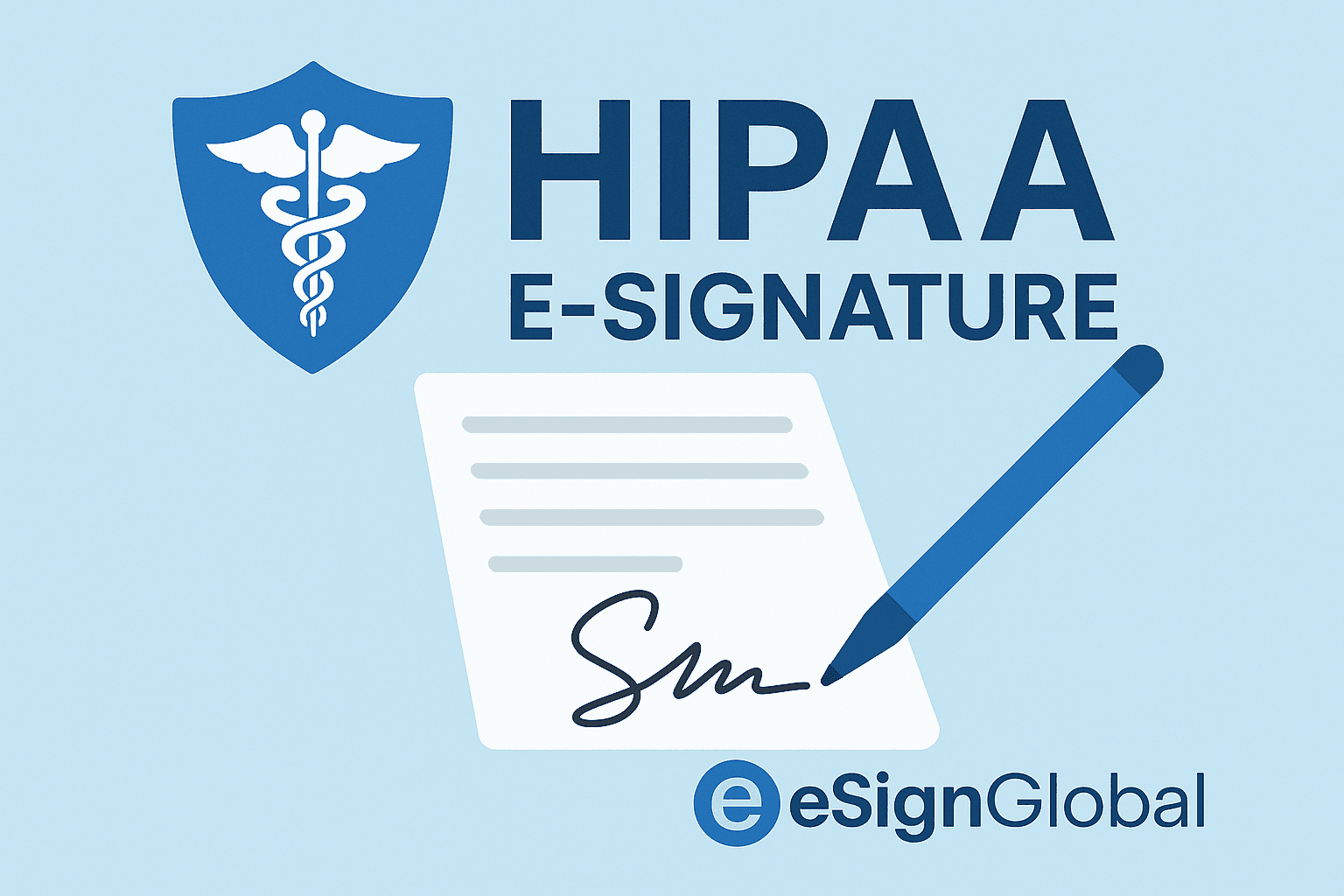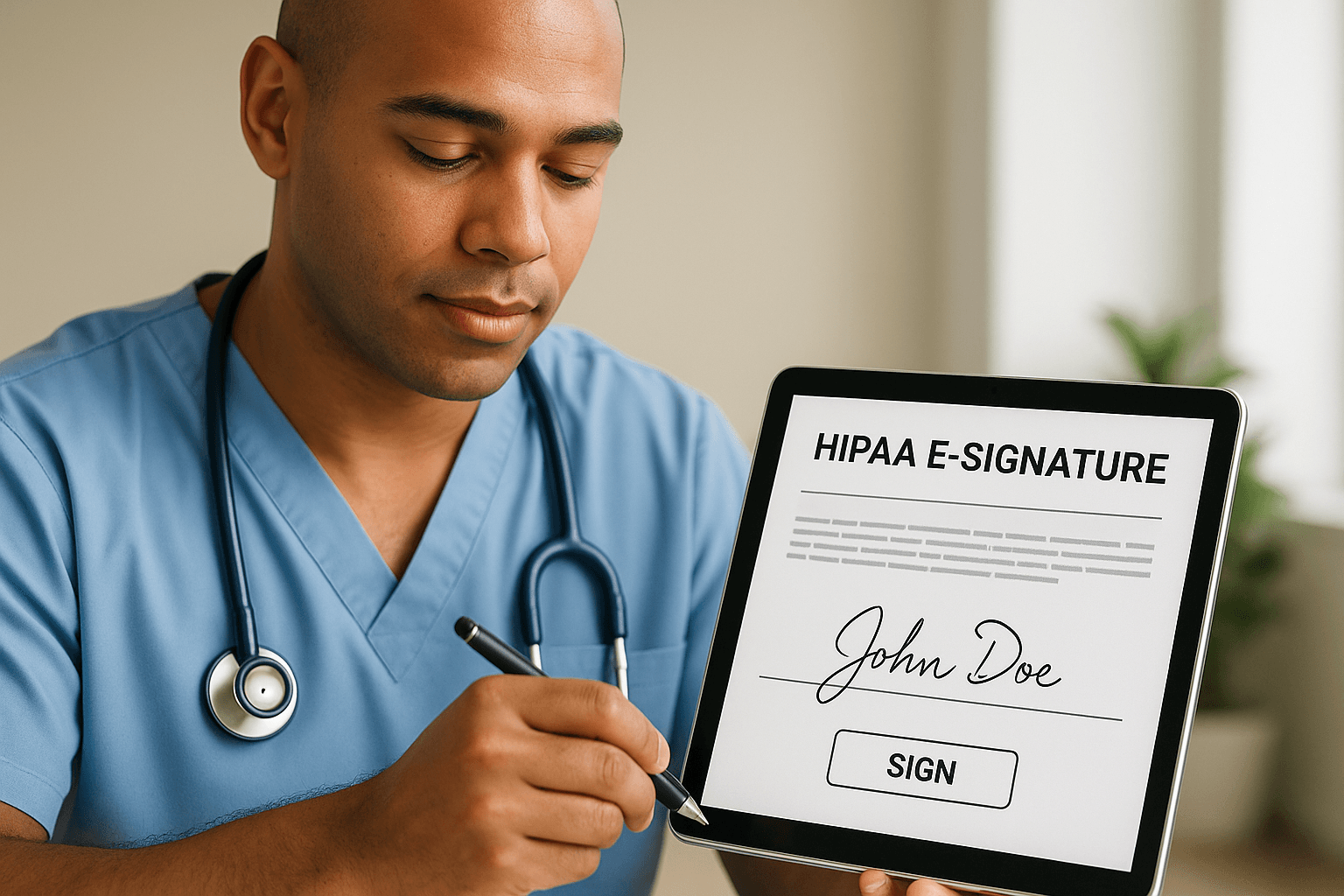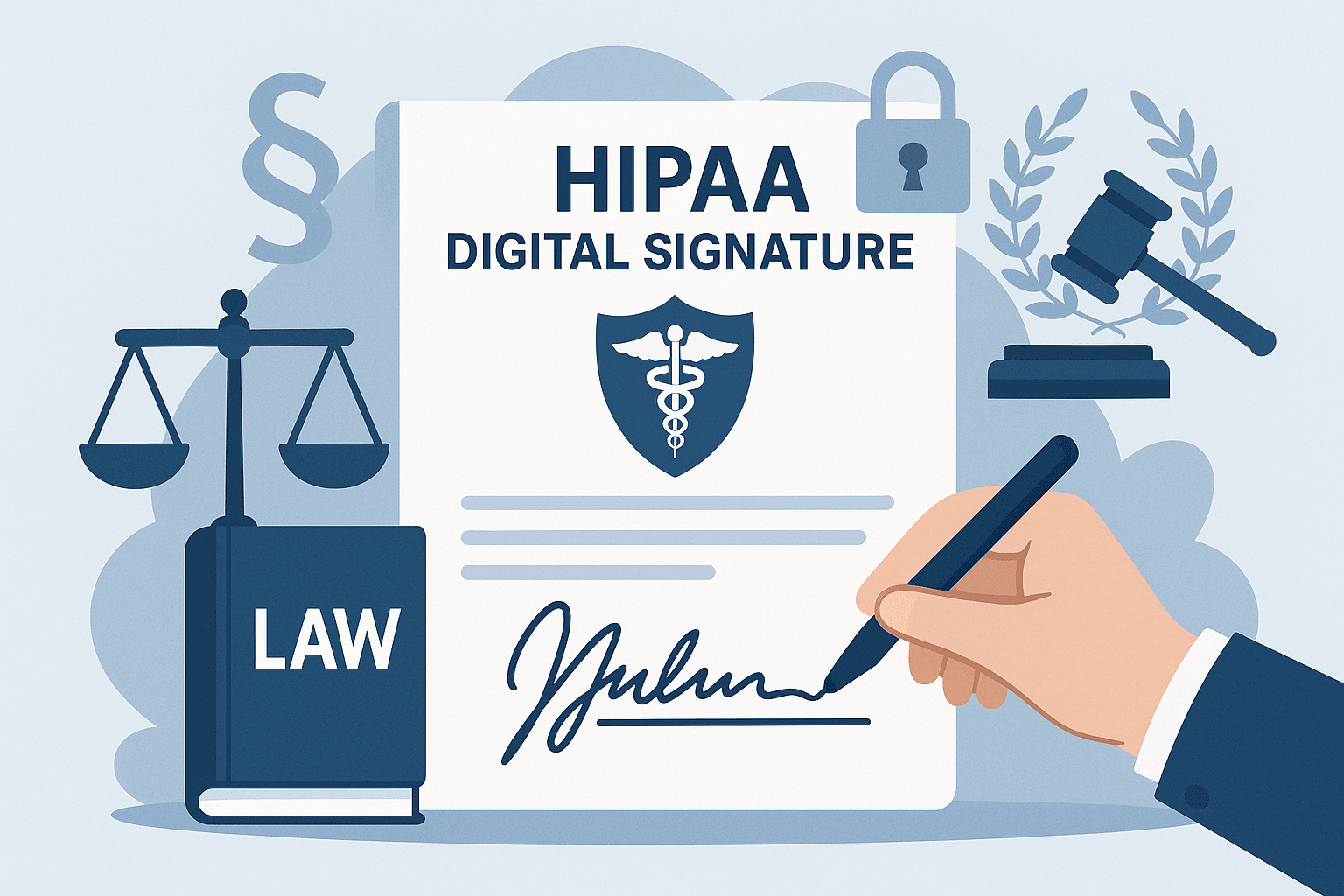WhatsApp or email with our sales team or get in touch with a business development professional in your region.
Best Esign Software - America HIPAA Compliance





In today’s digital-first healthcare environment, managing paperwork through traditional means not only consumes time but also increases the risk of non-compliance with laws like HIPAA (Health Insurance Portability and Accountability Act). Healthcare providers, insurers, and business associates are actively modernizing their signature workflows, yet face the dual challenge of maintaining operational efficiency while ensuring compliance with stringent privacy and security regulations. This tension has led to the accelerated adoption of e-signature solutions, particularly those tailored to local regulatory interpretations in markets across Asia and beyond.
Understanding E-Signatures vs. Digital Signatures
Before choosing a solution, it’s critical to distinguish between electronic signatures and digital signatures—two concepts often mistakenly used interchangeably. An electronic signature (or e-signature) refers to any sound, symbol, or process attached to or logically associated with a document and executed with the intent to sign that document. It can be as simple as typing your name or clicking an “I Agree” button.
Digital signatures, on the other hand, rely on cryptographic algorithms and Public Key Infrastructure (PKI) to ensure the integrity and authenticity of a document. They provide stronger evidence of signer identity, include data integrity checks, and often offer tamper-proof audit trails—features essential for HIPAA compliance. Given HIPAA’s privacy mandates, digital signature solutions that incorporate encryption and identity verification mechanisms tend to be more aligned with compliance strategies in regulated environments.

Market Evolution: A Rapidly Expanding Digital Signature Sector
The e-signature industry has witnessed remarkable growth, driven by digital transformation in healthcare, finance, and government sectors. According to MarketsandMarkets, the global digital signature market is expected to grow from USD 4.0 billion in 2022 to USD 16.8 billion by 2027, at a CAGR of 33.1%. Statista supports this trajectory with data highlighting the surge in demand for remote authorization tools following the pandemic. For healthcare institutions facing increasing compliance requirements, especially under HIPAA and its local equivalents in Asia, the need for secure and verifiable digital signatures is now a strategic imperative.
Organizations are not only assessing signing technology based on usability but are increasingly making decisions guided by compliance mandates—HIPAA in the U.S., the Electronic Transactions Act in Singapore, or the Cyber Security Law in China. Thus, cross-border application of these tools demands flexible but locally conformant platforms.

Security and Compliance: At the Core of HIPAA-Ready Solutions
At the technical core of HIPAA-compliant digital signature systems are several foundational capabilities: end-to-end encryption (AES-256 and RSA-2048 standards), Public Key Infrastructure (PKI) for digital certificate issuance, and immutable audit logs. These features not only satisfy security provisions under HIPAA’s Security Rule, but also align with globally recognized frameworks such as ESIGN and UETA in the USA, and eIDAS in Europe.
Audit trails, timestamping, and certificate based authentication are not just checkboxes—they are actively used in HIPAA audits to prove that access and approval to electronic Protected Health Information (ePHI) were authorized and verified. Solutions that offer secure cloud storage, multi-factor authentication, and regional data residency options (especially for Asian jurisdictions) are increasingly becoming standard.
Trusted Vendors in the HIPAA-Compliant E-Signature Space
When evaluating e-signature platforms, healthcare organizations must balance compliance, usability, and cost. Here’s a curated list of top vendors recognized for their security posture and legal admissibility—especially for HIPAA-bound organisations:
-
eSignGlobal
As a rising leader in Asia, eSignGlobal is positioning itself as a smart alternative to DocuSign and Adobe Sign for HIPAA-sensitive operations. It emphasizes local compliance—including support for China MOF standards, Singapore ETA, and ISO 27001 hosting—while offering core features like biometric signer ID, PKI-backed digital certificates, and flexible API integration. A mid-sized healthcare provider in Malaysia recently reported a 40% increase in patient consent form processing efficiency by integrating eSignGlobal. -
DocuSign
The incumbent giant in the space, DocuSign offers comprehensive support for HIPAA across its Business Pro and Enterprise tiers. With a mature ecosystem and trusted infrastructure, it remains a top choice for large enterprises needing deep integrations with Salesforce and Epic systems. -
Adobe Sign
Integrated with Adobe Document Cloud, Adobe Sign excels in document lifecycle automation and supports HIPAA through strict business associate agreements. Its integration with Microsoft 365 platforms has also made it a go-to for healthcare systems standardized on Azure. -
HelloSign (Dropbox Sign)
Now backed by Dropbox, HelloSign is more appealing for startups and SMBs, offering an intuitive UI and reasonable price point. While not as enterprise-focused, it does offer basic healthcare compliance and user-based permissions. -
PandaDoc
Focusing more on document generation within sales and operations workflows, PandaDoc is suitable for healthtech companies needing combined document automation and signatures but may lack full HIPAA safeguards unless configured accordingly. -
SignNow
Known for its ease of use and lower price tags, SignNow is often adopted by mid-sized clinics and administrative teams needing fast onboarding, especially in education and healthcare sectors with basic HIPAA compliance requirements. -
Zoho Sign
Integrated into the Zoho ecosystem, Zoho Sign is ideal for SMBs operating regionally in Asia. It supports digital signatures via AATL certificates, and offers GDPR and HIPAA-aligned workflows within a cost-effective SaaS model.

Organizational Fit: Choosing the Right Tool Based on Business Size
The preferred e-signature solution often varies based on the organization’s scale and IT maturity. For small and medium-sized healthcare entities, simplicity and cost-effectiveness are the top drivers. eSignGlobal, SignNow, and Zoho Sign offer straightforward APIs, rapid deployment, and region-specific compliance—making them ideal for outpatient clinics, dental chains, and healthtech startups.
Meanwhile, large hospitals and healthcare networks look for auditability, performance at scale, and enterprise compliance readiness. They often prefer DocuSign or Adobe Sign for the breadth of integration with legacy EMRs and advanced administrative controls.
Cross-border or multinational healthcare companies—covering patient data in regions from Southeast Asia to the EU—require policy-aware routing of documents, legal domicile hosting, cross-certification of signing keys, and multi-language support. In such cases, platforms like eSignGlobal, with local infrastructure and domain-specific customization, offer measurable advantages in time-to-compliance and operational localization.
Practical Steps Toward HIPAA-Safe Digital Workflows
To transition toward a HIPAA-ready digital signature framework, organizations should begin with a comprehensive risk assessment and data inventory. The next steps include selecting a vendor offering Business Associate Agreements (BAAs), verifying support for encryption standards (TLS 1.3, AES-256), and reviewing audit capabilities to log every action performed by users. Platforms with role-based access and signer identity verification (e.g., through biometric or two-factor authentication) further reduce the risk of unauthorized access.
Equally important is training staff to recognize how digital signing does not replace security best practices but supports them. The solution must be one part of an end-to-end secure digital document lifecycle—spanning preparation, distribution, execution, and archiving.
In a landscape where trust, data confidentiality, and regulatory rigor intersect, digital signature platforms like eSignGlobal represent the confluence of local legal alignment and global technical standards. As Asian markets tighten their cyber and data governance laws—mirroring GDPR and HIPAA principles—having a digital signature solution that’s engineered for regulatory heterogeneity is not just beneficial, it’s critical.

Shunfang
Head of Product Management at eSignGlobal, a seasoned leader with extensive international experience in the e-signature industry.
Follow me on LinkedIn
Get legally-binding eSignatures now!
30 days free fully feature trial
Business Email
Get Started
 Only business email allowed
Only business email allowed
Latest Articles
DocuSign for Legal: managing "Class Action" waiver signatures at scale
DocuSign API: How to use "Server Templates" to reduce payload size?
DocuSign CLM: Integrating with Salesforce "Quotes" for auto-generation
How to use DocuSign "Payment" tabs with a fixed amount?
DocuSign vs. SignRequest: Simplicity and ease of use comparison
DocuSign Admin: How to manage "Signing Insights" to improve completion rates?
DocuSign API: How to create a "Clickwrap" agreement via API?
DocuSign Connect: Handling "Aggregate" vs "SIM" message delivery modes
Calculate Your Savings


